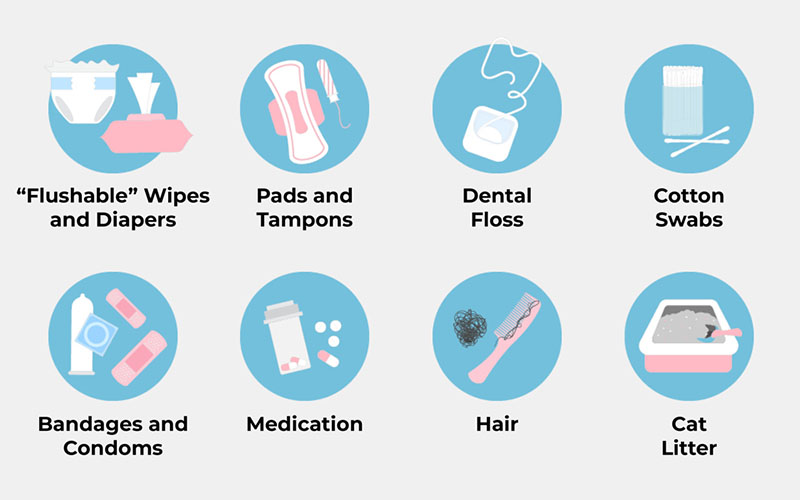Prevent Water Pollution and Sewer Backups
About Prevent Water Pollution and Sewer Backups
Preventing pollution from entering streams is the only sure way of maintaining good water quality and habitat for aquatic life. Storm drains lead directly to our streams, so most of the pollution entering our streams comes from Rockville residents and businesses. Everyone can help prevent pollution and keep our water clean.
Tips
- Pick up after your pet.
- Pick up litter and throw it away in a garbage can. Better yet, join a stream cleanup!
- Reduce or stop using fertilizers on your lawn and garden. If you do use fertilizer, be sure to sweep up any excess extra and never apply right before a rainstorm.
- Mulch or compost grass or yard waste, or leave it in your yard if you can’t compost. Don’t blow leaves into the street. This clogs and damages storm drains.
- Don’t flush wipes down the toilet or pour fats, oils, or grease down your sink. This can clog pipes and lead to costly sewer backups in your home or cause overflowing sewers in your neighborhood and local parks.
- Use a commercial car wash whenever possible. They properly dispose of the soapy water rather than letting it run into the storm drain.
- Do your part to keep excess salt out of local waterways during winter by shoveling snow right away, using less deicer, and sweeping up and reusing the excess.
- Don’t pour motor oil or other chemicals down the storm drain. Take it to the Montgomery County Transfer Station. It’s free!
- Report pollution or illegal dumping by calling the city’s pollution hotline at 240-314-8348. Report a blocked storm drain by calling 240-314-8567.
Toilets Aren’t Trash Cans
Rockville has a flushing problem. Increasing amounts of unflushable trash are removed from Rockville’s sewer lines each year. These unflushables clog Rockville’s sewer lines and are one of the top causes of emergency sewer line maintenance calls.
Remember the four Ps: pee, poop, puke, and toilet paper. If it’s not one of these, drop it in the trash can, not the toilet. Examples of unflushable trash include: “flushable” wipes and diapers, pads, tampons, dental floss, cotton swabs, bandages, condoms, medication, hair, and cat litter.

You should care because:
- Clogs cost you money.
In Rockville the average cost to unclog a simple toilet blockage runs between $250-$500. More severe clogs further down your line can cause sewage backups that damage your belongings, your property, and even your neighbors’ homes, costing considerably more in repairs and replacements (not to mention neighborly goodwill). Even if you don’t own your home, a serious sewer backup can destroy your belongings and leave you (temporarily) without use of your facilities. - Clogs hurt Rockville’s city infrastructure.
Clogs in Rockville’s main sewer lines damage our pipes and require costly repairs to keep sewer service running smoothly throughout the city. And the more time and money the city spends on pipe repairs, the greater the cost to our water and sewer program, potentially leading to higher sewer rates and utility bills. - Clogs damage the environment.
Severe sewer line backups can flow into local streams and waterways, overflow into our parks and streets, and hurt plants and wildlife. Sewage overflows can promote harmful algal blooms and introduce disease-causing pathogens in our waterways. While this won’t affect your drinking water supply, it will impact the living conditions for our outdoor friends.
Contact
Public Works Department
Environmental Management Division
240-314-8870
environment@rockvillemd.gov
Hours
Monday – Friday
8:30 a.m. – 5 p.m.